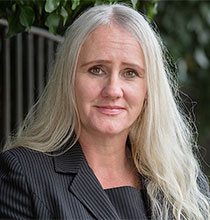From 6 April 2022, people in England and Wales will have the option of applying for a no fault divorce. This is intended to simplify and modernise UK divorce proceedings, while reducing the potential for unnecessary conflict by removing the need for one spouse to “take the blame” for the failure of the marriage.
No Fault Divorce Solicitors in Bristol
-
- Carolyn Bawden-Frost
- Chartered Legal Executive
- 01454 859465
-
- Kiran Bhakerd
- Paralegal
-
- Melody Brown
- Partner
-
- Kelly Davidge
- Legal Assistant
-
- Eliza Praveen
- Paralegal
-
- Phil Thomas
- Associate Solicitor
-
- Sarwat Unar
- Paralegal
-
- Suzanne Young
- Senior Legal Assistant
-
- Nathalie Payne
- Solicitor
The introduction of no fault divorce by the Divorce, Dissolution and Separation Act 2020 is a major update to UK divorce law, but while this should, hopefully, make divorce proceedings more straightforward, it does not mean divorce will be easy, and it is still strongly recommended to seek expert advice.
Other changes being brought in at the same time include introducing a minimum timeline for divorce of 6 months (26 weeks), so it is essential that all paperwork is completed promptly and accurately to avoid the process taking even longer.
It is also important to have expert legal support when dealing with the division of matrimonial finances and arrangements for children, as these can be very complicated, and the outcome can have long-lasting repercussions for you and your loved ones.
At Henriques Griffiths, we take pride in offering clear, practical support for every part of divorce and separation. We have offices in Bristol and Winterbourne and also advise clients nationwide.
To discuss how our divorce lawyers can help with a no fault divorce, as well as with issues around children and finances, please ring us on 0117 909 4000 or use our simple enquiry form, and we will call you back.
Looking for answers about no fault divorce? Take a look at our no fault divorce FAQs.
How our solicitors can help with no fault divorce
Making a divorce application
Under the new rules introduced from 6 April 2022, couples will now have the option to make a joint application for divorce. This is a change from the previous rules, where one spouse had to make the application alone, placing the blame for the divorce on the other spouse. However, one spouse will still be able to make an individual application if required.
Our divorce solicitors can help with preparing your divorce application, making sure everything is completed correctly and that all paperwork is submitted quickly. This can ensure your divorce goes ahead as swiftly and smoothly as possible, with no unnecessary delays.
Division of finances and child arrangements
The changes to the divorce rules do not directly affect the process of separating your finances and making arrangements for children. However, it is hoped that removing the potential for conflict over who should take the blame and what reasons should be given for the divorce will help to make these other parts of getting divorced more amicable.
Our divorce lawyers can assist with negotiating financial settlements and arrangements for children, using our strong expertise in non-confrontational dispute resolution to give you the best chance of reaching a voluntary agreement. However, if you cannot agree, we can also support you in applying to a court for a Financial Order and/or Child Arrangements Order.
No fault divorce FAQs
What is a no fault divorce?
In a nutshell, ‘no fault’ divorce means that neither spouse needs to legally accept blame for the end of the marriage as part of divorce proceedings.
Under the divorce rules prior to 6 April 2022, a person applying for divorce would need to state in their divorce application that their spouse was responsible for the breakdown of their marriage and cite one of five accepted reasons for this:
- Adultery – where a spouse had been unfaithful with a member of the opposite sex (same-sex infidelity was treated as ‘unreasonable behaviour’).
- Unreasonable behaviour – where a spouse had behaved in a way that meant it was not reasonable to expect the other spouse to continue to live with them (this covered a broad range of issues and was by far the most commonly used reason).
- Desertion – where a spouse has left without the other spouse’s agreement, without a good reason and with the intention to end their relationship for 2 years out of the previous 2.5 years.
- 2+ years separation – where both spouses agree to the divorce.
- 5+ years separation – where one spouse opposes the divorce.
While the final two reasons could be considered ‘no fault’ divorce, the need to wait such a long time to use them make this option impractical for most people.
Under the terms of the Divorce, Dissolution and Separation Act 2020, an individual or couple applying for a divorce will no longer need to give a reason for the marriage ending. Instead, they will simply need to make a statement that the marriage has “irretrievably broken down”, and this will be sufficient for the divorce to be granted.
What is the process for no fault divorce?
The main steps in the process for no fault divorce depend on whether you are making a joint application (both spouses applying together) or a sole application (one spouse applying by themselves).
The basic process for a joint application is:
- Complete and submit a divorce application (normally done online, but can be done on paper if necessary).
- The court will review the application and, after a minimum wait of 20 weeks, issue a Conditional Order stating that the court sees no reason the divorce cannot go ahead.
- After another 6-week wait, the court will issue the Final Order, which legally ends the marriage.
If you wish to make a sole application, the process is:
- Complete and submit the divorce application.
- The court will review the application and send a version to your spouse, who will have 7 days to respond, acknowledging that they have received the application.
- The court will issue the Conditional Order (again, a minimum of 20 weeks after it receives your application).
- The court will issue the Final Order at least 6 weeks after the Conditional Order, ending your marriage.
How long does a no fault divorce take?
Under the new divorce rules from 6 April 2022, it will take a minimum of 26 weeks (6 months) to get a divorce.
How much does a no fault divorce cost?
There is a £593.00 court fee that you must pay when applying for a divorce. We can charge a fixed fee for helping with your application and will be happy to discuss our fees for assisting with other parts of the divorce process, such as separating finances and making arrangements for children.
Why choose Henriques Griffiths’ no fault divorce lawyers?
Henriques Griffiths has been helping families with a wide range of legal matters since 1973. Our clients tell us they value our legal excellence and outstanding service, with our team always working hard to provide the best support and the right guidance for your circumstances.
Our Law Society accreditations & memberships
Our Family Team includes members of the Law Society’s Family Law and Children Law panels, recognising our exceptional expertise in these areas.
Our team also includes members of Resolution, which is the UK’s leading association of family lawyers, with a focus on finding non-confrontational approaches to family law that minimise conflict wherever possible.
Henriques Griffiths holds the Law Society’s Lexcel accreditation in respect of our high standards of practice management and client care. The firm is regulated by the Solicitors Regulation Authority (SRA), confirming our continuing excellence both legally and professionally.
Contact our expert no fault divorce solicitors now
For advice on no fault divorce or any other family law matter, please call our family law and divorce solicitors on 0117 909 4000 or use the links below to make an enquiry or request a call back.
We have local offices in Bristol and Winterbourne, as well as working with clients nationwide.









